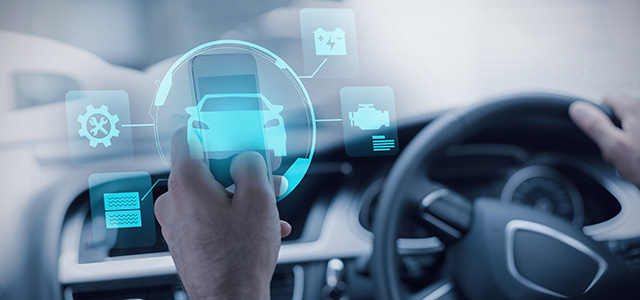The cars of today may already seem flash –but in future, motors will likely offer a more enhanced driving experience.
Though it’s usually tricky to determine what’s ahead, the industry looks set to undergo some huge changes, and relatively soon. Innovators like Peter Vardy already deliver high quality gadgets, but what will car tech of the near future look like?
Let’s explore the top three predictions for the auto sector.
- Self-Diagnosis
It can be hard to find the time to visit a mechanic for a check-up – it is, however, vital to keep an eye on your car’s body and inner workings.
But vehicles of the future may be able to do this by themselves, as certain manufacturers want to make self-diagnosing motors a reality for drivers.
If this transpires, autos will be designed to detect any issues before they can develop further. Even better, some brands may offer cars with a self-referral capacity. In other words, autos could contact mechanics as soon as they spot a problem.
So, they’ll be able to book a garage appointment autonomously, and their drivers will be left with more time for other important duties.
- Autonomous Cars
Self-driven cars once only belonged in fiction – but now, they look set to become a reality.
In fact, they could be on the roads by the end of this year, as part of a government test plan scheduled for then. It’s predicted that these vehicles will be available to Brits by 2021, potentially bringing huge benefits to UK drivers.
Automated autos, for example, will likely not be subject to human error, as they’ll be designed to guarantee efficiency for drivers. In turn, this could maximise safety for passengers.
While cyber hacks on autonomous cars are a concern among many, the government has promised to ensure that these autos will be resilient to this security threat.
- Health Monitors
Many of us perform health checks on ourselves at home. What if your car could do this for you, though? It sounds like a highly radical idea – however, it could materialise.
Brands are trying to create a vehicle that can monitor its owner’s health as they drive. But how would this work? Well, a system already exists whereby sensors in a driver’s seat assess heart function – so, health readers could operate in a similar way.
If this becomes a reality, it may revolutionise the daily routine for many drivers. Time previously spent on daily health checks could be freed up for more enjoyable activities, for example. And what’s more, there may be less need to pay for specialist home equipment.
Health monitors in cars could save time and money.
This is a riveting time for the auto industry – future cars could be hugely different to the ones that we drive now. How will the sector influence your driving experience in years to come?
